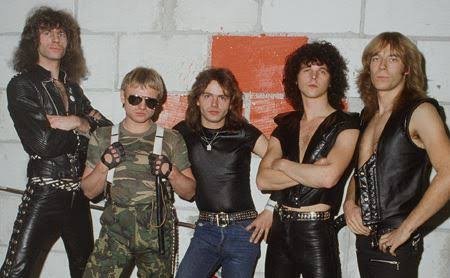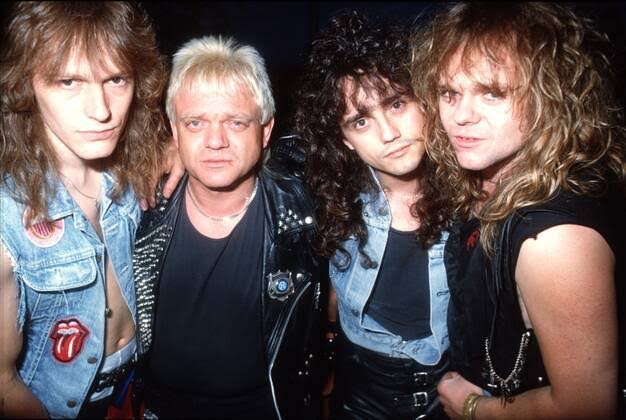
In 1979, German heavy metal band Accept released their self-titled debut—an album that would lay the groundwork for a legacy spanning decades. Though far from a polished masterpiece, the record offered a gritty, unfiltered look at a young band discovering its voice. Guitarist Wolf Hoffmann and vocalist Udo Dirkschneider have since reflected on those formative days, shedding light on the inspiration—and spontaneity—behind that first effort.
“We weren’t trying to be anything specific,” Hoffmann recalled in a later interview. “We simply recorded the songs we had been playing for years—no real theme, no grand plan. Just raw energy.”
Recorded at Delta Studio in West Germany, the album captured the unrefined essence of a band experimenting with its identity. The lineup featured Hoffmann on guitar, Udo on vocals, Peter Baltes on bass (and lead vocals on two tracks), and Frank Friedrich on drums. It was a snapshot of a group that had spent years jamming in garages and clubs, finally stepping into a studio with a handful of songs and an eagerness to make their mark.
Udo’s Early Vision and Sound
For Udo Dirkschneider, music had always been a visceral experience. Born in Wuppertal, West Germany, he first explored music through piano and keyboards before gravitating toward rock ‘n’ roll. Inspired by bands like Deep Purple and Black Sabbath, Udo eventually found his calling as a vocalist, bringing a distinct grit and power that would define Accept’s sound.
Even in his early songwriting, Udo emphasized atmosphere and lyrical integrity.
“The most important thing for me,” he once said, “has always been the feeling. Lyrics come first—because the emotion needs to lead the music.”
This emphasis on mood and message, paired with Hoffmann’s sharp guitar work, formed the core of Accept’s unique style: hard-edged yet melodic, aggressive yet anthemic.
A Raw Beginning with Lasting Impact
Accept’s debut wasn’t a concept album—it was a collection of material developed over years of rehearsal and live shows. Hoffmann admitted that the songs were stylistically mixed, reflecting a band still experimenting with its direction. But within that diversity lay the foundation of something greater: soaring guitar harmonies, pounding rhythms, and the growling authority of Udo’s vocals.
Looking back, both Hoffmann and Dirkschneider see the album as a time capsule—a portrait of youthful ambition and creative freedom. It wasn’t perfect, but it was authentic.
“That first album was us—raw, unpolished, but real,” Hoffmann said. “It started everything.”
And it did. From that humble beginning, Accept would go on to become one of Germany’s most influential metal acts, with a legacy born in passion, not perfection.
Leave a Reply